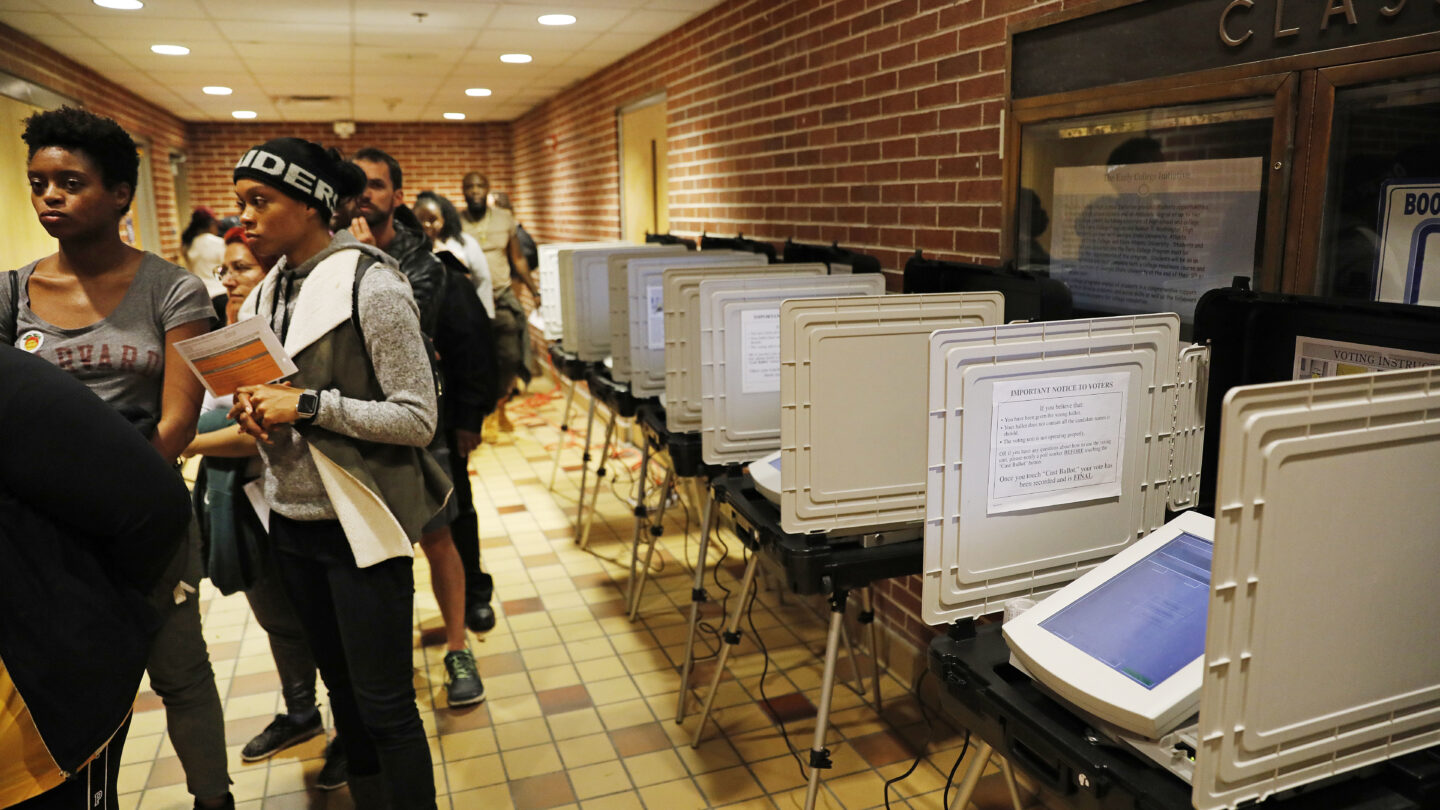Court: Suits Challenging Georgia Voting Machines Can Proceed

The lawsuits, filed by Georgia voters and an election integrity group, seek to bar Georgia from using paperless electronic voting machines in future elections.
A ruling by a federal appeals court in Atlanta clears the way for two lawsuits challenging Georgia’s use of paperless electronic voting machines to move forward.
The lawsuits, filed by Georgia voters and an election integrity group, seek to bar Georgia from using the machines in future elections. In an opinion Thursday, a three-judge panel of the 11th U.S. Court of Appeals did not rule on the merits of the case but rejected arguments that state officials have immunity from the suits.
The lawsuits argue that the touchscreen voting machines Georgia has used since 2002 are vulnerable to hacking and provide no way to confirm that votes have been recorded correctly because there’s no paper trail. They sought in motions filed in August to force the state to use paper ballots in the November midterm election.
U.S. District Judge Amy Totenberg in September denied those requests, saying she worried it would be too chaotic or problematic to make the switch so close to the election. But she found that the Georgia voters and election integrity advocates who filed the suits had demonstrated “the threat of real harms to their constitutional interests.”
Totenberg also declined to dismiss claims against the Georgia secretary of state and state election board members, and the state appealed that rejection to the 11th Circuit.
In oral arguments last week, the three-judge panel was clearly skeptical of arguments by a lawyer for the state officials that claimed state officials were immune from the suits, so Thursday’s ruling rejecting those arguments wasn’t terribly surprising.
The ruling says requests to keep the state from using the current voting machines don’t violate state sovereignty.
“(S)uits are permitted when the plaintiff alleges that state election officials are conducting elections in a manner that does not comport with the Constitution,” the opinion says.
Furthermore, the opinion says, the lawsuits “do not seek a court order directing the precise way in which Georgia should conduct voting.” Rather, they are just asking the court to order the state to stop using “a system that they decry as unconstitutionally unsecure.”
Legislative immunity does not apply because the lawsuits don’t challenge acts of the legislature but instead challenge the way state laws are implemented, the opinion says.
Lawyer John Salter, who represents the state officials, did not respond to an email seeking comment Friday.
Marilyn Marks, executive director of the Coalition for Good Governance, which filed one of the lawsuits, said she looks forward to getting answers to “questions about systemic irregularities” in past elections.
“Such information will greatly benefit voters, election officials and lawmakers as plans are made for a new voting system, and Congress considers changes to federal laws on voting systems,” Marks said in an emailed statement.
“We appreciate that the court of appeals acted quickly in rejecting defendants’ arguments on appeal, which enables us to finally move forward with our case on the merits for the benefit of all Georgia voters,” Michael Qian, who represents a group of voters, said in an emailed statement.
Totenberg recognized that her September order would likely be appealed but said at the time that if the case returned to her, she would handle it on an expedited basis.
“The 2020 elections are around the corner,” she wrote. “If a new balloting system is to be launched in Georgia in an effective manner, it should address democracy’s critical need for transparent, fair, accurate, and verifiable election processes that guarantee each citizen’s fundamental right to cast an accountable vote.”
Georgia state lawmakers are expected to come up with criteria for a new election system during the current legislative session. Then the secretary of state’s office would handle the procurement of a new system in line with the changes that lawmakers outline in state law.
Secretary of State Brad Raffensperger has said that, ideally, the state would have new machines in place for some municipal elections in November 2019, before having them fully implemented across the state for the 2020 election cycle.








